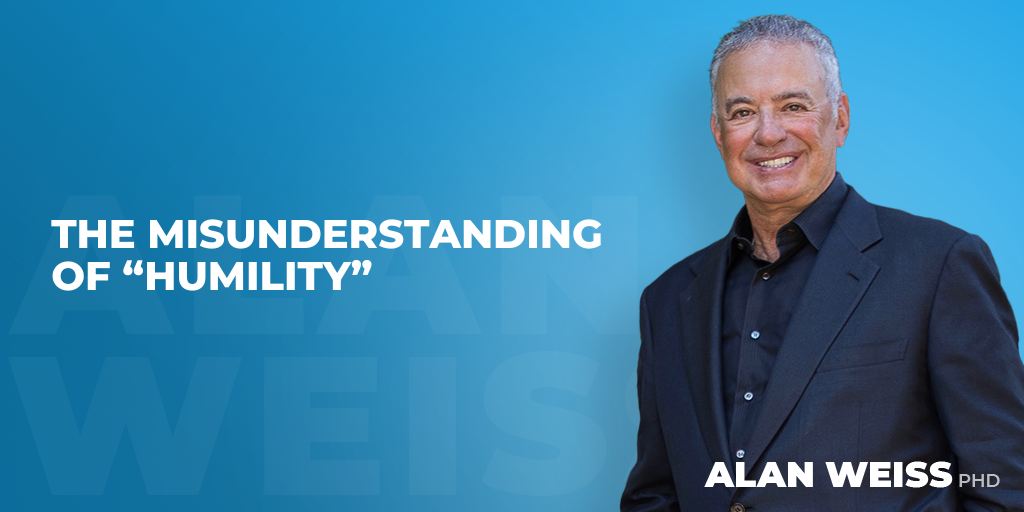Contrarian Wisdom
I'm conducting my Mentor Hall of Fame meeting in New York just prior to my birthday party. Andrew Sobel, who has been in my community for quite a while, came up with an interesting phrase, “contrarian wisdom.” I told him that I'd race him to write the book (he's written some fine work, such as Clients for Life), but since he focuses on accuracy and I focus on volume, we both know I'd win!
His phrase originated with some observations the group was sharing. For example, I've found that, at large dinners in restaurants, the servers will get a better tip from me by not including service rather than by including the traditional 18-20%. That “guarantee” of good compensation actually decreases their compensation, unless I pay attention to adding still more to it.
Why do realtors insist on conforming to a 6% commission rate, or search firms to a third of first year income? Doesn't the value vary, and isn't it usually greater than that arbitrary compensation represents? I watched a workman carefully put plastic booties over his shoes when entering my home. Why can't someone provide these at airport security in return for advertising, or charge a quarter for them? It beats walking barefoot over the filth that accumulates on those floors.
Why aren't there canisters to collect loose change for charities when you're departing countries you're not returning to soon, and the small change doesn't matter except when it adds up after thousands of passengers (Virgin Air does this in flight)?
Shouldn't there be a charge for speed, not merely solution? If Disneyland has express passes to avoid lines, why can't consultants charge more for priority attention, or auto repair shops, or accountants?
We often fall into what I call the “success trap.” We do more and more of what we feel we're already good at, instead of using success to springboard us to a new level of effectiveness and appeal.
What's your reaction to my position that wealth is actually represented by discretionary time, not income, and that the mindless pursuit of money can actually erode your wealth by demanding so much of your time? Are you aligned merely to make money, or to create real wealth?
Consider it unconventional wisdom. Andrew and I do. And I'm sure he'll enjoy reading it in my new book!
© Alan Weiss 2011. All rights reserved.




Scott Simmonds
Sorry I’m not there with you.
On wealth as discretionary time…
Small things, big improvements – our cleaning woman now does, dishes, laundry, and many odd jobs around the house – coming in 3 times a week. She makes more money. We get more time.
We have made arrangements to have groceries and other shopping done for us by a local service. I have my books and copy paper delivered to the house (Amazon and Staples). Why wouldn’t I have my fruits, vegetables, prescriptions, and dry cleaning delivered?
Alan Weiss
In New York, you can!
Lew Sauder
Scott makes an excellent point. With additional discretionary income, you can purchase discretionary time. However, Alan’s point is that faster service should carry a premium. Alan’s new book delivered by Amazon can get there faster if you opt for FedEx rather than free shipping. You pay a higher tip to a restaurant server that gives prompter service. If you are a regular, that good service may carry over to future visits. There are companies that have figured out the premium on time (i.e. FedEx and Disney), but not enough.
Bill Conerly
Looking back, I had several consulting projects which added greatly to my toolkit, gave me good stories, and were fun. I can think of three that were also on tight budgets. I’m glad I took them.
I can think of a number of other dull, boring, dreadful projects.
When I’m called about a new project, I always quote a very premium price for the boring work, and I don’t much care if they turn me down. For an interesting project, however, I’d work for free if I had to.
That’s another way to get leisure: do stuff you love doing, in which case getting paid is just a bonus.
Alan Weiss
You find something you’re passionate about, and pursue it. But I don’t think I’d work for free under any circumstances outside of pro bono work.